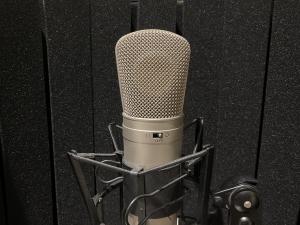Working with the media in Nigeria’s COVID-19 fight
Abuja – When Regina Otokpa, an Abuja-based journalist, co-authored a newspaper article on poor observance of mask-wearing and physical distancing directives in Nigeria, it caused some buzz.
Reaction to the report was swift. Government officials reinforced warnings against disregarding the preventive measures, while medical personnel voiced satisfaction that awareness had been created among policymakers: health workers are at a higher risk of COVID-19 infection, and in Nigeria more than 2000 health workers have been infected by the disease.
“The report caused quite a stir because it helped stakeholders identify loopholes that could cause more harm rather than flatten the COVID-19 curve,” says Otokpa who covers health and business for the paper.
She is among the country’s reporters who have turned an investigative spotlight on the Nigerian response to the pandemic and are helping to create awareness of the disease, which has so far infected more than 67 000 people and claimed 1173 lives.
At the onset of the pandemic misinformation and rumours were rife in Nigeria. Outlandish claims ranged from COVID-19 causes such as 5G wireless technology to lemon tea as a viable therapy. Rumours circulating on WhatsApp that the disease was a ruse by some to spread fear and divert funds meant to fight the virus was especially hard to debunk, says Ayodamola Owoseye, a reporter with an Abuja-based paper.
Early in the outbreak, it was difficult to find experts to turn to, Owoseye says, as most researchers had little understanding of the virus. Yet, there were volumes of unverified information online. Some people turned away from her reports altogether, she remembers. “People became scared and stopped reading the news. They claimed it was affecting them psychologically."
To help counter misinformation, the World Health Organization (WHO) office in Nigeria has trained national journalists, focusing on the principles of public health reporting that include information accuracy, data sourcing and verification. The training also aimed to help change people’s behaviour in the face of COVID-19.
The Organization has supported the work of more than 100 reporters across Nigeria since March to understand and relay technical terms and educate the public about the pandemic. WHO also provides real-time information on COVID-19 response and prevention. In Abuja alone, 50 journalists have been trained and another 100 in the north-east states of Adamawa, Borno and Yobe.
WHO continues to collaborate with the media to debunk false information. Staff from the Organization also participate in national radio and television programmes to speak about the pandemic.
Nigerian newsrooms are using different approaches to fight misinformation. Some directly address the rumours by producing lists of fake information along with write-ups debunking them. Others have fact-checking teams for in-depth verification.
At Dubawa, the fact-checking arm of Premium Times, a major Nigerian newspaper, reporters have been publishing reports to counter rumours and address people’s worries on COVID-19, using creative tools like graphics and videos. Dubawa is the first such initiative in the country and works to fight false news and deter propagators of misleading information.
“We journalists should keep reporting about COVID-19 so that people will be aware that it's not yet time to celebrate,” says Bukola Afeni, a reporter with Newsday, an online publication, referring to a declining number of in-depth reporting on the pandemic.



